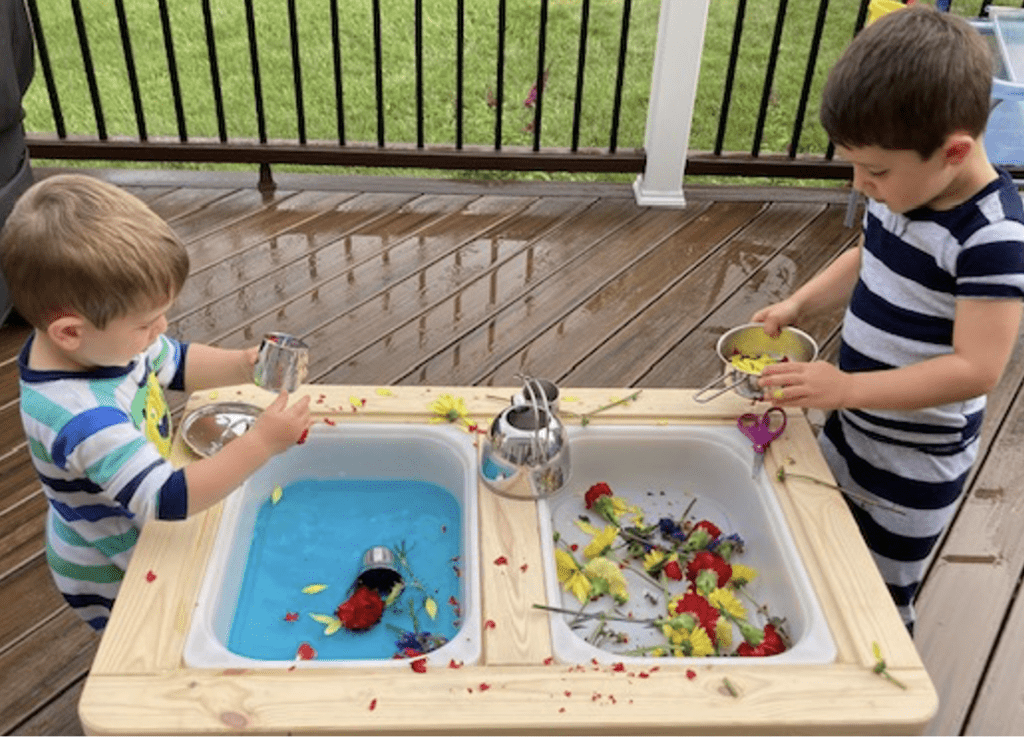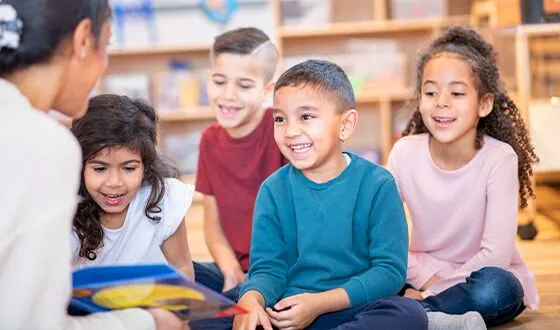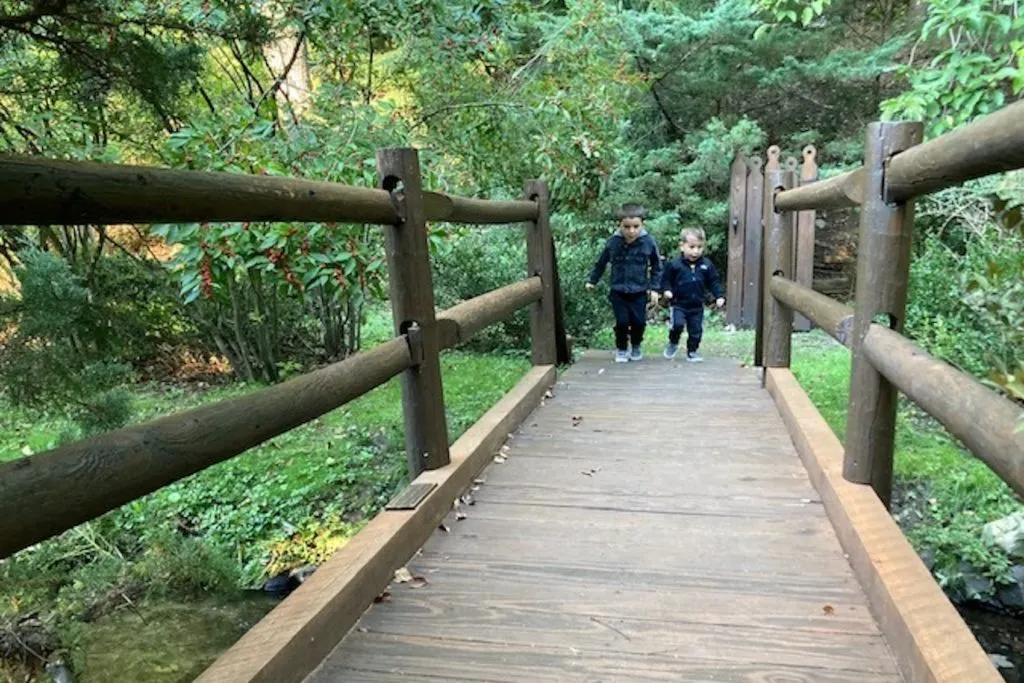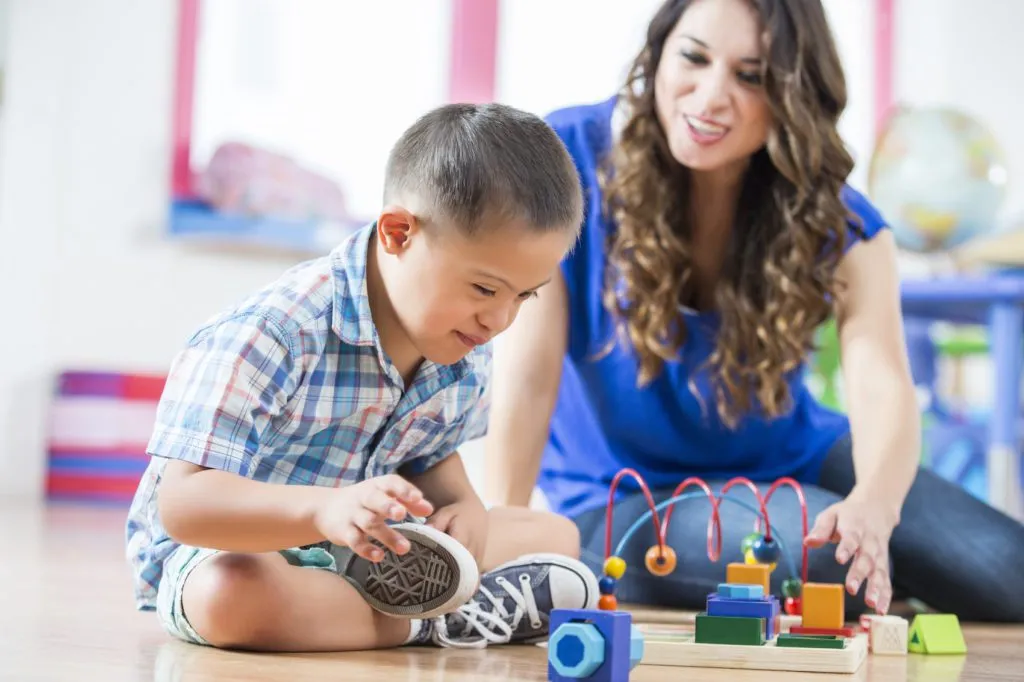Why I Don’t Just Tell Children to “Share!” Anymore


A Tale of Two Scissors
Two children play with flower clippings in their backyard water table when a conflict erupts over a single pair of purple scissors.
Michael, who was using the scissors first, yells, “Stop! That’s mine!”
Matthew responds, “No! You stop! I want it!”
Both children scowl and begin to reach for the purple scissors. Their grandmother immediately calls out, “You need to share!” Of course, this demand does not remedy the situation, and the children continue to bicker.
Their grandmother lets out a sigh of frustration and grabs another pair of scissors from inside. “Here. Now there are two pairs of purple scissors,” she says.
Each child grips a pair of scissors and goes their separate way to snip flowers.
Although brief, this common scenario, including how the adult responded, speaks volumes to the children. What happens when we force children to share or immediately fix a problem for them? Simply put, it becomes increasingly difficult for children to develop the skills necessary to solve social problems in positive and healthy ways.
Using Connection to Build Positive, Healthy Habits
The well-meaning grandmother in this scenario reacted in the way that many people do: she attempted to force children to share a limited resource. Now let’s look at how a professional with access to the wide variety of resources Teaching Strategies offers, such as the objectives for development and learning , Al’s Pals, and the foundation volumes, might have responded to the situation. Consider these developmentally appropriate ideas for guiding children to solve their social problems, manage their emotions, and get on with the important work of playing.
- Acknowledge children’s feelings and the situation at hand.
Say, “I can see that you are both upset right now. There is one pair of purple scissors, and you both want them. Michael was using the scissors first. It is his turn now.”
Often, narrating the conflict aloud can help children strengthen their inner voice and understanding of the situation. - Connect.
Get down to children’s eye level. Say, “This feels hard. Matthew, it can be hard to wait. It is hard for me to wait, too. I am here to help.”
Letting both children know you understand and are there to help, not reprimand, removes the pressure from this charged situation and sets the tone for respectful communication and problem solving. - Offer support and model.

To Michael, say, “Michael, can you give Matthew the scissors when your turn is over?” To Matthew, say, “Matthew, what can we do while we wait? It looks like the ladle is not being used. Would you like to try it?”By consistently modeling and practicing a variety of possible solutions, teachers ensure that children have the knowledge and tools necessary to respond to social situations. - Continue supporting these skills throughout the day.
How we conduct ourselves in our day-to-day interactions in the classroom leaves a lasting impression on how young children internalize pro-social behaviors. Talking aloud as you compromise or take turns with other adults in the room is one way to model healthy habits throughout the school day. A teacher might say something like, “I see you are using the sink now, Mr. Sam. I will wait until you are done to wash my paintbrushes.”
Sharing, Much Like All Social–Emotional Development, Is Complex
When a teacher understands what she can legitimately expect from a child given their age and school experience, she may be less likely to set inappropriate expectations for children. Sharing involves social and emotional development, language development, and cognitive development. Taking those into account, it’s much easier to understand why an expedient view from the adult perspective of “You need to share” can be a pretty unreasonable expectation.
Protecting a child’s right to engage with a material until they are done, in this case the purple scissors, lets the child know that you, the adult, understand that their play is important. Providing time and space for the child to continue their play also supports an understanding of setting healthy and reasonable boundaries.
Offering possible solutions, such as turn taking, supports children’s understanding of delayed gratification and true generosity. Waiting your turn is not easy! Young children may experience strong emotions, such as anger, while they wait, which provides another opportunity for the adult to support the child as they identify and respond to the way they are feeling. Over time, and with frequent practice, children will strengthen the skills necessary to negotiate solutions and manage their emotions more independently.
Consistently reflecting on how we respond to children when social problems occur, as they always will, is an essential aspect of our work as teachers. Being mindful of the feedback we offer to the children in our care becomes more natural when we consistently pause to consider our responses and use research-based resources, such as Teaching Strategies solutions, to inform our practice.

Build the foundation children need for success in school and in life.
Discover Al’s Pals, our comprehensive social–emotional curriculum designed for the specific needs of preschool children.



